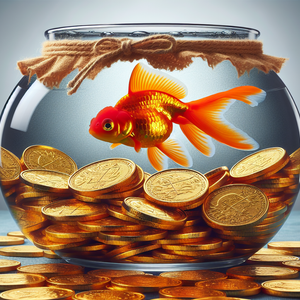Sustainable Sailing: The Future of Olympic Yachting

Sailing, while often perceived as a clean sport, does have its share of environmental concerns. The materials used in boat construction, the carbon footprint associated with travel, and the potential pollution from maintenance and operations can take a toll on marine ecosystems. For instance, traditional sails made from synthetic materials often end up in landfills, contributing to plastic pollution. Recognizing these challenges, the International Sailing Federation (World Sailing) and various national governing bodies are spearheading initiatives aimed at reducing the sport's environmental footprint.
Initiatives for Sustainability
One of the most prominent initiatives within Olympic sailing is the commitment to sustainability defined in World Sailing's Sustainability Agenda 2030. This roadmap aims to make sailing a leader in environmental stewardship by promoting practices that protect the oceans. Key components of this agenda include: 1. Eco-Friendly Materials: The industry is shifting towards sustainable materials for boat construction. Innovations such as bio-resins, recycled plastics, and sustainable wood are being explored to create competitive vessels without compromising performance. For example, the use of flax fibers in composite materials offers a lightweight alternative that is also biodegradable. Notably, some teams are experimenting with advanced composites that reduce weight and improve efficiency while being less harmful to the environment. 2. Waste Reduction and Recycling: Many sailing teams are adopting zero-waste policies, ensuring that all materials used during training and events are either reused or recycled. Initiatives like the “Sailors for the Sea” campaign encourage teams to minimize their waste and promote recycling efforts in their local communities. The British Sailing Team, for instance, has implemented a comprehensive recycling program that includes everything from sail materials to food packaging. 3. Carbon Offsetting: To combat the carbon emissions associated with travel for competitions, several sailing organizations are investing in carbon offset programs. By supporting reforestation projects and renewable energy initiatives, they are working to balance their environmental impact. The US Sailing Team has committed to offsetting their carbon footprint by investing in projects aimed at enhancing carbon sequestration. 4. Conservation Efforts: Collaborations with marine conservation organizations are becoming increasingly common. For instance, teams are engaging in beach clean-ups, marine habitat restoration, and awareness campaigns to educate the public about ocean health. Organizations like the Ocean Conservancy are partnering with sailing teams to promote initiatives that combat marine pollution. These efforts not only enhance the teams' reputations but also foster a sense of responsibility toward the planet.
Technological Innovations
Technological advancements are playing a crucial role in the sustainability of Olympic sailing. The integration of data analytics and smart technologies into sailing training and competition helps optimize performance while minimizing environmental impact. For example, advanced weather prediction tools allow sailors to make informed decisions that can reduce their overall fuel consumption during training. Moreover, the use of drones and AI technologies enhances fleet management and reduces the need for excessive on-water support, further decreasing the carbon footprint. Innovations such as electric propulsion systems are also being explored to reduce reliance on fossil fuels for auxiliary power.
The Role of Athletes and Teams
Athletes are increasingly becoming advocates for sustainability within the sport. Many sailors are using their platforms to raise awareness and inspire change. Olympic champion sailors, such as Denmark's Jonas Warrer and New Zealand's Peter Burling, are vocal about the need for a greener approach in sailing. They often participate in campaigns to educate younger sailors about environmental stewardship and encourage them to adopt sustainable practices. This shift in athlete mentality is crucial, as the influence of these champions can inspire a new generation of sailors to prioritize sustainability.
The future of Olympic sailing lies in its ability to adapt to the pressing environmental challenges we face today. Through innovative practices, eco-friendly materials, and a commitment to conservation, the sport is taking significant steps toward sustainability. As athletes, organizations, and fans unite in this quest, Olympic sailing has the potential not only to inspire future generations of sailors but also to lead by example in the global movement toward environmental responsibility. By championing sustainability, Olympic sailing can ensure that the beauty of the sport—and the oceans it celebrates—endures for years to come. The commitment to sustainable sailing is not merely an option; it is a necessity for the sport's survival and the health of our planet.
Sustainability Coordinator for Sports Organizations
International Sailing Federation, Olympic Committees, National Sports Associations
Core Responsibilities
Develop and implement sustainability programs focused on reducing environmental impact during events and training.
Collaborate with teams and athletes to promote eco-friendly practices and recycling initiatives.
Monitor and report on sustainability metrics and progress towards organizational goals.
Required Skills
Strong understanding of environmental regulations and sustainability practices.
Excellent communication and project management skills.
Experience in the sports industry or event management is a plus.
Marine Conservation Specialist
Ocean Conservancy, local environmental NGOs, research institutions
Core Responsibilities
Conduct research on marine ecosystems and the impact of sports activities on ocean health.
Develop partnerships with sailing teams to promote marine conservation initiatives such as beach clean-ups and habitat restoration.
Educate athletes and the public about sustainable practices and marine conservation.
Required Skills
Background in marine biology, environmental science, or conservation management.
Strong analytical and communication skills to convey complex information effectively.
Experience working with non-profit organizations or in community outreach is beneficial.
Eco-Friendly Materials Engineer
Boat manufacturers, sports equipment companies, research and development firms
Core Responsibilities
Research and develop sustainable materials for boat construction and sailing equipment.
Collaborate with designers to integrate eco-friendly materials into competitive sailing gear without sacrificing performance.
Conduct tests and evaluations to ensure materials meet industry standards and environmental regulations.
Required Skills
Degree in materials science, engineering, or a related field.
Experience with composite materials and knowledge of sustainable design principles.
Familiarity with industry regulations regarding material use in sports equipment.
Sports Data Analyst (Sustainability Focus)
Sailing teams, sports analytics firms, sustainability consultancies
Core Responsibilities
Analyze performance data to optimize sailing strategies while minimizing carbon footprints.
Develop models to predict environmental impacts associated with training and competition logistics.
Collaborate with teams to implement data-driven decisions for sustainable sailing practices.
Required Skills
Proficiency in data analysis tools (e.g., Python, R, or Excel).
Strong understanding of environmental metrics and sustainability indicators.
Background in sports analytics or environmental science preferred.
Environmental Policy Advocate for Sports
Environmental advocacy groups, sports federations, governmental agencies
Core Responsibilities
Advocate for sustainable policies and practices within the sailing community and broader sports industry.
Engage with stakeholders to promote awareness of environmental issues and sustainable initiatives.
Monitor legislative developments related to environmental impacts of sports and propose actionable strategies.
Required Skills
Strong background in environmental policy, law, or advocacy work.
Excellent interpersonal and negotiation skills to work with diverse stakeholders.
Experience in public speaking and community engagement.


